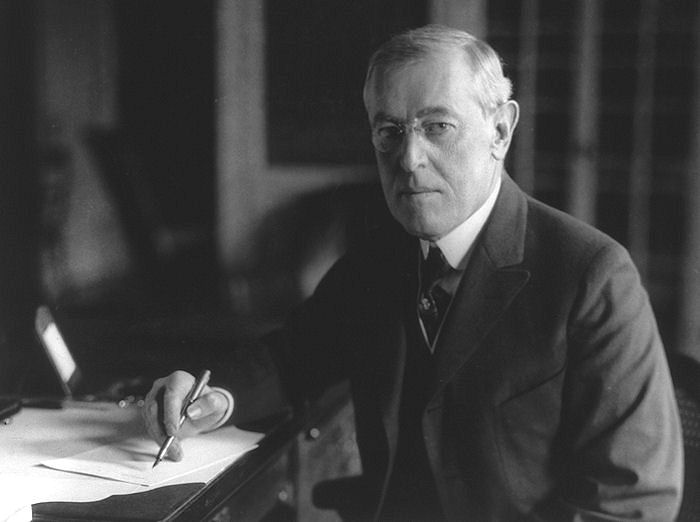Summarize.
Delivered by President Wilson to Congress on January 8th, 1918, the speech begins by answering the European powers and assuring the country that the Great War was being fought for moral reasons and as the war to end all wars, to create a world fit and safe to live in. Wilson then gives his fourteen points, or the United States' idea of how to create world peace. Briefly;
1: Public diplomacy and negotiations.
2: Absolute freedom of the seas.
3: Removal of economic barriers and creation of equality in trade.
4: Reductions by all nations of their armies to the lowest point consistent with public safety.
5: Adjustment of colonial claims to the interests of both the inhabitants of the colonies and the colonial powers.
6: Russian independence and evacuation of it's territory by other powers.
7: Evacuation and restoration of Belgium as independent.
8: Evacuation of France and the return of the Alsace-Lorraine territory to France.
9: Readjustment of Italian borders.
10: Independence of multiple nationalities in Austria-Hungary.
11: Evacuation of the Balkan states and allowance for them to be independent along lines of established nationality.
12: Protection of minority states in Turkey and free passage through the Dardanelles by all nations.
13: Independence for Poland, including free access to the sea.
14: A "League of Nations" should be formed to allow security for large and small powers alike.
Wilson concludes his speech by encouraging that all powers must act as one to allow safety and peace throughout the world. He also urges not to harshly punish Germany, but to allow it to remain among the world powers.


